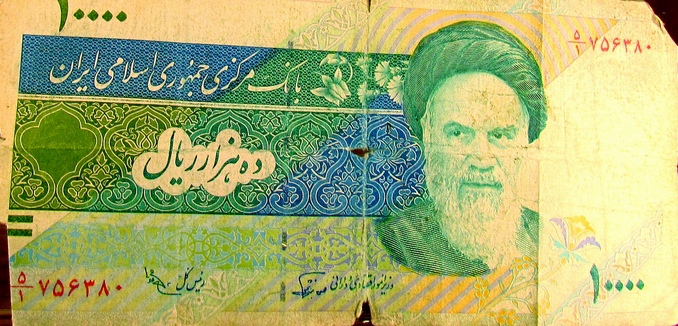The expected windfall Iran would receive from sanctions relief as part of a nuclear deal would likely benefit its internal and external security services—including proxy terrorist groups such as Hezbollah—which would further destabilize the Middle East, according to an analysis published today in The Wall Street Journal by Michael Singh, the managing director of the Washington Institute for Near East Policy.
In his most recent budget, Iranian President Hasan Rouhani proposed government expenditures of approximately $300 billion. While some domestic programs were increased—health-care spending rose 59%–so were security expenditures. Saeed Ghasseminejad and Emanuele Ottolenghi of the Foundation for Defense of Democracies noted that funding was up 48% for the Islamic Revolutionary Guard Corps and 40% for the Ministry of Intelligence and Security; overall defense spending, which amounts to 3% of Iran’s gross domestic product, rose 33%. These figures likely understate Iran’s security spending; as the Congressional Research Service recently noted, the Revolutionary Guard Corps spends “significant amounts of unbudgeted funds on arms, technology, support to pro-Iranian movements, and other functions.” …
There is, however, little reason to believe that Iran’s sponsorship of terrorist organizations and efforts to coopt or subvert governments (see: Syria, Lebanon, Yemen, and Iraq) is inexpensive. Consider that Iran’s declared military budget is $12 billion to $15 billion. Iranian annual support for Syria’s Assad regime was recently estimated at $6 billion to $15 billion. Iran’s funding of Hezbollah has been estimated at $200 million per year, though that may have increased with the organization’s heavy losses in Syria. Iran also funds Shiite militias in Iraq, and it sponsors groups in Gaza, Yemen, and elsewhere.
In short, Iran is likely to spend any financial windfall from a nuclear agreement on both domestic and foreign priorities–as it has done in good economic times and bad. The two are not mutually exclusive, and Iran is not likely to reorder its priorities. The agreement terms reportedly under discussion provide Iran with substantial economic relief while demanding precisely nothing from it regarding its sponsorship of terrorism and destabilizing regional behavior. Good policymaking demands that the benefit of any nuclear agreement be weighed against this cost, rather than pretending it does not exist.
Agence France-Presse reported that Iran plans to devote greater resources over the next five years to “developing ballistic missile capabilities, arms production and modern weaponry.”
The fear that Iran would use its windfall to further its hegemonic designs on the Middle East is something that the administration has dismissed. But other regional actors disagree. Earlier this week, Lebanese politician Ahmad el-Assaad wrote that he feared that the nuclear deal would ensure that “Lebanon won’t be able to free itself in the foreseeable future from the control of Hezbollah.”
More generally, numerous experts expect that with its expected windfall, Iran will seek to export its revolution more aggressively across the Middle East. In April, three fellows with the Washington Institute for Near East Policy warned that a deal would allow Iran “to project its power into corners of the Middle East in ways that were never possible before.” Similarly, David Rothkopf, editor of Foreign Policy magazine, wrote that “focusing on the Iran nuclear deal without simultaneously addressing Iran’s regional threat is a serious error.” Former State Department official Aaron David Miller wrote that an unless the deal “really does change Iran’s behavior, we’ve only bought ourselves a bigger [crisis] down the road.”
[Photo: ozz13x / Flickr ]




